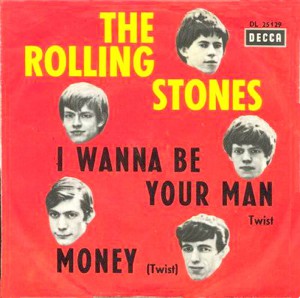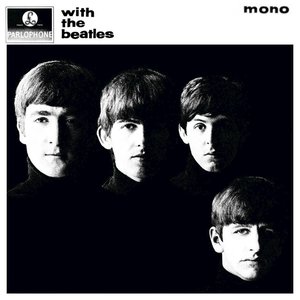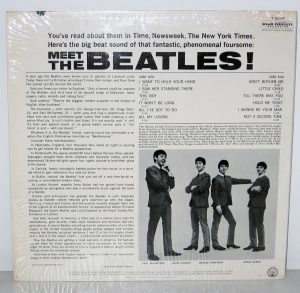October 7 Peace Love Art Activism
FEMINISM
Voting Rights
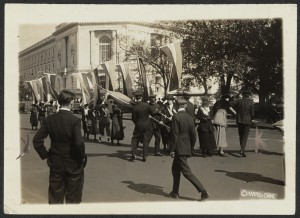
October 7, 1918: National Women’s Party picketed with banners in front of U.S. Capitol and Senate Office Building. Pickets arrested daily and released without charges. Throughout rest of Oct. and Nov., pickets harassed by unruly crowds and manhandled by police. (see Dec 2)
Women in service academies
October 7, 1975: President Ford approved a public law granting women entrance into Army, Navy, and Air Force academies for the first time beginning in the fall of 1976. [Women’s Memorial article] (see Oct 15)
October 7 Peace Love Art Activism
The Red Scare, McCarthyism, and the Cold War
October 7, 1949: less than five months after Great Britain, the United States, and France established the Federal Republic of Germany in West Germany, the Democratic Republic of Germany was proclaimed within the Soviet occupation zone. The West criticized the Republic as an un-autonomous Soviet creation, (see Nov 2)
Windscale nuclear reactor (UK)
October 7, 1957: a fire in the graphite-core reactor in Cumbria results in a limited release of radioactivity (INES Level 5). The sale of milk from nearby farms was banned for a month. The reactor could not be salvaged and was buried in concrete. A second reactor on the site is also shut down and the site decontaminated. Subsequently part of the site is renamed Sellafield and new nuclear reactors are built. (NYT article) (see Dec 17)
Cuban Missile Crisis
October 7, 1962: Cuban President Osvaldo Dorticós spoke at the UN General Assembly: “If … we are attacked, we will defend ourselves. I repeat, we have sufficient means with which to defend ourselves; we have indeed our inevitable weapons, the weapons, which we would have preferred not to acquire, and which we do not wish to employ.” (see Cuban Missile Crisis for expanded story)
Nuclear test ban treaty

October 7, 1963: President John F. Kennedy signed the documents of ratification for a nuclear test ban treaty with Britain and the Soviet Union. (CW, see Nov 18; NN, see January 29, 1964)
October 7 Peace Love Art Activism
October 7 Music et al
Howl
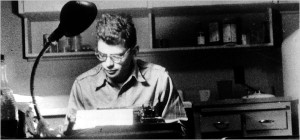
October 7, 1955: Allen Ginsberg read his poem “Howl” for the first time to an audience at the Six Gallery in San Francisco. “Howl” is considered to be one of the great works of American literature.
It came to be associated with the group of writers known as the Beat Generation, which included Jack Kerouac and William S. Burroughs. (see November 1, 1956)
WNEW-FM
October 7, 1967: WNEW-FM’s Pete Fornatelle interviewed Rosko regarding his Oct 2 resignation from WOR-FM. [see Oct 29]
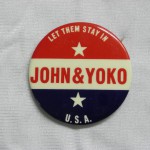
October 7, 1975: the NY State Supreme Court voted to reverse John’s deportation order. Judge Irving Kaufman wrote “The courts will not condone selective deportation based upon secret political grounds…Lennon’s four-year battle to remain in our country is testimony to his faith in this American dream.” (see April 24, 1976)
October 7 Peace Love Art Activism
BLACK HISTORY
Freedom Day
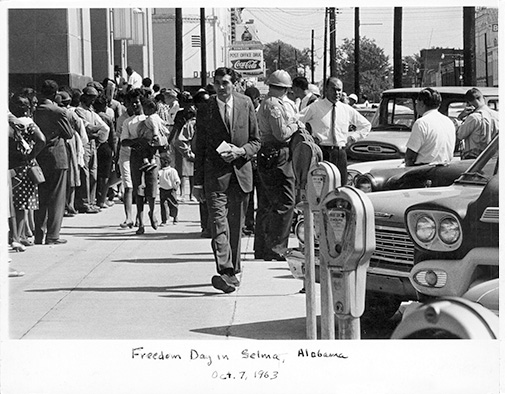
October 7, 1963: in what would be known as “Freedom Day,” about 350 blacks line up to register to vote at the Dallas County (Alabama) Courthouse. Registrars go as slowly as possible and take a two-hour lunch break. Few manage to register, most of those are denied, but the protest is considered a huge victory by civil rights advocates. [SNCC article] (see Oct 8)
United States versus Cecil Price et al.
October 7, 1967: trial in the case of United States versus Cecil Price et al. began in the Meridian courtroom of Judge William Cox. Chief Prosecutor John Doar and other government attorneys had reason to be concerned about Cox. Cox, appointed as an effort to appease powerful Judiciary Committee Chairman (and former roommate of Cox at Ole Miss) Senator James Eastland, had been a constant source of problems for Justice Department lawyers (especially John Doar) who were seeking to enforce civil rights laws in Mississippi. In one incident, Judge Cox referred to a group of African Americans set to testify in a voting rights case as “a bunch of chimpanzees.”
A jury of seven white men and five white women, ranging in ages from 34 to 67, was selected. Defense attorneys exercised peremptory challenges against all seventeen potential black jurors. A white man, who admitted under questioning by Robert Hauberg, the U.S. Attorney for Mississippi, that he had been a member of the KKK “a couple of years ago,” was challenged for cause. Judge Cox denied the challenge. (Wikipedia entry) (see Oct 20)
Emmett Till
October 7, 2008: President Bush signed the Emmett Till Unsolved Civil Rights Crime Act of 2007 It tasked theJustice Department’s Civil Rights Division and the FBI with reviewing, investigating and assessing for prosecutive merit more than 100 unsolved civil rights era homicides. (BH, see Nov 4; ET, see Emmett Till)
October 7 Peace Love Art Activism
1964 World Series
October 7 – 15 , 1964: World Series St. Louis Cardinals against N Y Yankees, Cardinals defeated the Yankees in seven games. It was the last Yankee World Series appearance until 1976. [MLB article]
October 7 Peace Love Art ActivismOperation Enduring Freedom
War in Afghanistan
October 7, 2001: the armed forces of the US, the UK, Australia, and the Afghan United Front launched Operation Enduring Freedom in Afghanistan. (next Afghanistan-related, see Oct 22; War, see April 14, 2021)
October 7 Peace Love Art Activism
Sexual Abuse of Children
October 7, 2002: a commission appointed by Cardinal Bernard F. Law to help prevent sexual abuse by priests recommended that the Roman Catholic Archdiocese of Boston compile a registry of accused priests and pass information about them to employers. The commission also recommended monitoring accused priests after they were removed from their jobs and reporting information about their work, living situations and any new complaints of abuse to an independent review board of lay experts. (see Nov 3)
October 7 Peace Love Art Activism
Iraq War II
October 7, 2004: a CIA report concluded that Saddam Hussein did not possess stockpiles of illicit weapons at the time of the U.S. invasion in March 2003 and had not begun any program to produce them. [CNN, 10/7/04] (see January 12, 2005)
October 7 Peace Love Art Activism
